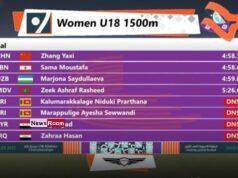Saturday 26th November, 2022
Dissident SLPP MP and former Minister Prof. Channa Jayasumana has said something noteworthy during the ongoing budget debate. He has argued that President Ranil Wickremesinghe, who succeeded President Gotabaya Rajapaksa, does not have a popular mandate to govern the country and therefore should not make crucial policy decisions on national security, etc. He has offered to present a private member’s motion to enable the President to hold a snap presidential election and seek a mandate from the people.
The government stands accused of trying every trick in the book to postpone the local government polls, and never will it take a bigger electoral gamble. But the argument that the current administration lacks legitimacy holds water in that it is doing exactly the opposite of what the SLPP undertook to do in its election manifestos presented to the public before the 2019 presidential election and the 2020 parliamentary polls.
The people voted the UNP out of power in 2020 because they did not approve of the way it handled national security and the economy, and elected the SLPP to make a difference. They handed over the reins of government to Gotabaya Rajapaksa and Mahinda Rajapaksa as they desired a clean break with the previous government.
Former President/Prime Minister Mahinda Rajapaksa, MP, taking part in the budget debate, on Wednesday (24), said: “When we took over in 2019 the Yahapalana government had drawn huge loans. We have done all we can to help the country. We had to face the Easter Sunday attacks and the COVID-19 pandemic. We are still trying to overcome their adverse impacts.”
Now, the uphill tasks of managing the economy and protecting national security have been entrusted to the UNP, which worsened the country’s debt crisis, according to Mahinda, and was rejected by the public twice. The country has undergone a reversion to the Yahapalana rule in all but name without public approval. The SLPP leaders have not only betrayed public trust but also made a mockery of the will of the people.
Moreover, one of the key pledges that enabled the SLPP to obtain a popular mandate to govern the country was that it would never privatise state assets. President Wickremesinghe admitted in Parliament, the other day, that former Prime Minister Rajapaksa was opposed to the divestiture of state ventures. The current administration has reneged on this pledge against the wishes of not only the people who voted for the SLPP but also the leader of that party himself!
As for national security, the Presidential Commission of Inquiry (PCoI), which probed the Easter Sunday terror attacks, held the entire Yahapalana government accountable. The final report of the PCoI says, “The government including President Sirisena and Prime Minister [Ranil Wickremesinghe] is accountable for the tragedy” (p. 471). National security is now under the purview of Wickremesinghe!
What has led to sea changes in the current administration’s policies was a wave of public protests, which came to be known as Aragalaya. The manner in which the President and the Prime Minister were ousted was far from constitutional. Even incumbent President Wickremesinghe, who benefited from Aragalaya, has refused to accept it as something legitimate. Hence his recent vow in Parliament to prevent a recurrence of Aragalaya and even deploy the military and declare a state of Emergency to abort it. He would not have threatened to do so if he had not been convinced that Aragalaya lacked legitimacy. Thus, a radical departure from the SLPP’s policies endorsed by the people in a constitutionally-prescribed manner at two elections in 2019 and 2020 requires approval by the public either at a general/presidential election or a referendum. Why the Opposition has baulked at flogging this issue is the question.







